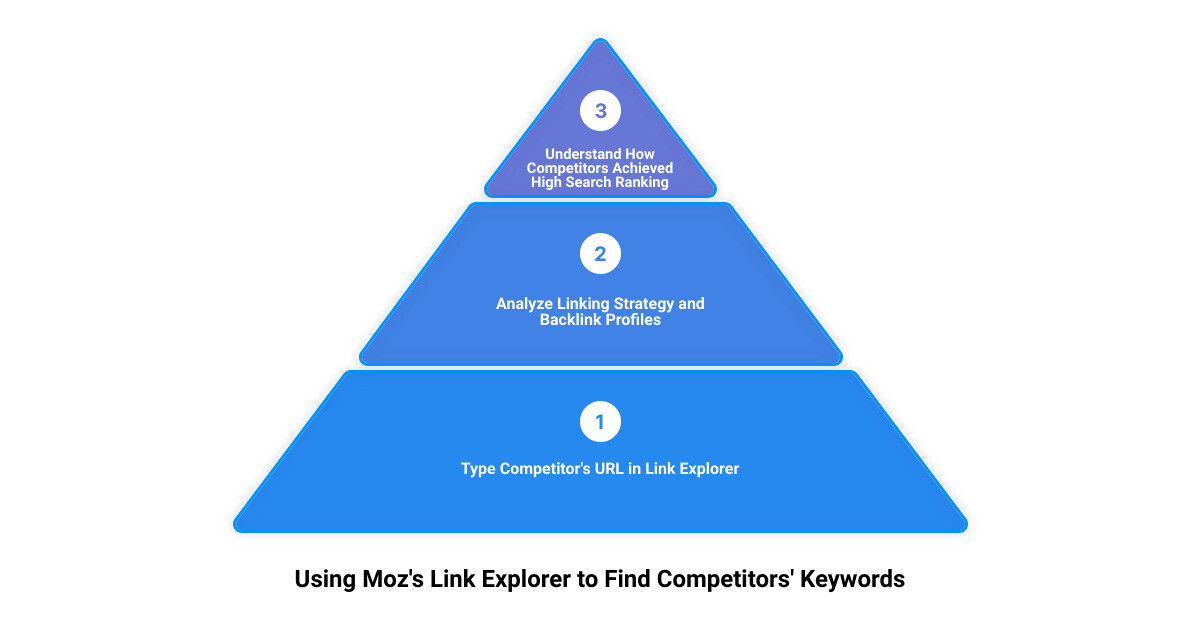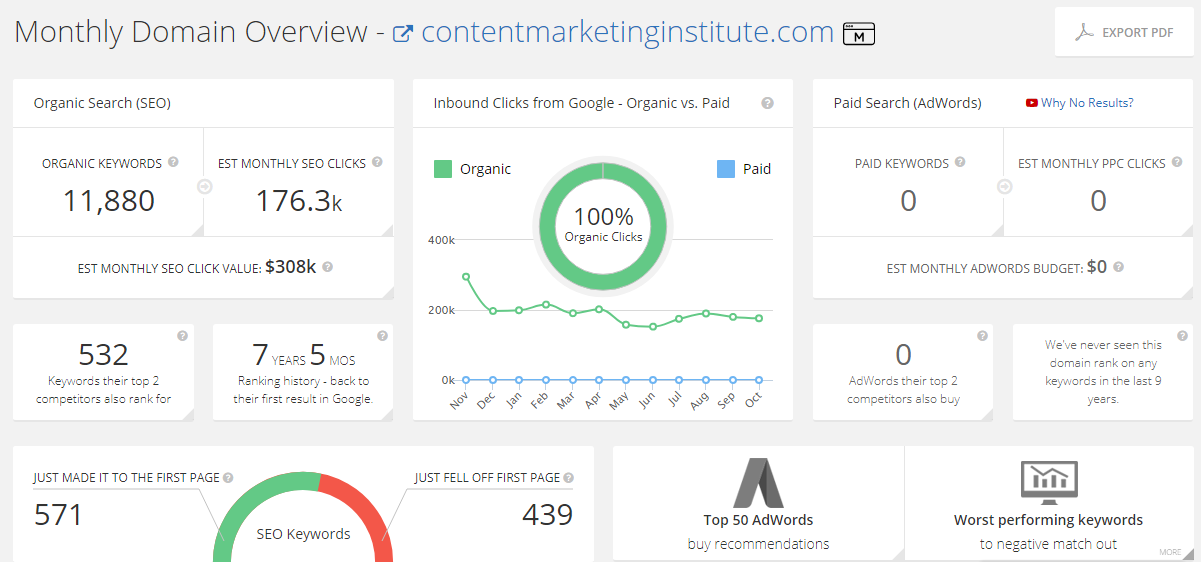Uncover the secrets of your competitors’ success with powerful keyword strategies. Dominate the competition and boost your own SEO game!

Image courtesy of via DALL-E 3
Table of Contents
Introduction to Competitor Keywords
Competitor keywords are like secret codes that rival businesses use to attract customers. Imagine if you knew the secret words your friends used to get free candy at the store – you could get some too! Well, that’s kind of how competitor keywords work. By figuring out what words your competition is using, you can improve your own business strategies to attract more customers.
What are Competitor Keywords?
Competitor keywords are the special words and phrases that other businesses use on their websites or in their ads to grab the attention of potential customers. It’s like when you shout “free ice cream!” to get everyone running towards your lemonade stand – those are your keywords! Knowing your competitors’ keywords helps you understand what they are doing to attract customers and how you can do it better.
Why Are They Important?
Understanding your competitors’ keywords is like peeking at their playbook in a game. It gives you insights into their strategies and helps you come up with better plays to win. By knowing what works for them, you can make smarter choices for your own business and stay ahead in the game. So, knowing your competitor keywords is crucial for creating successful strategies and winning more customers.
Finding Competitor Keywords
When you want to improve your own strategies and stay ahead in the competitive online world, it’s crucial to know what keywords your competitors are using. By discovering their tactics, you can adapt and enhance your own approach to attract more visitors to your website. Let’s explore some simple ways to find these competitor keywords.
Using Online Tools
One of the easiest ways to find competitor keywords is by using online tools like Google Keyword Planner and Ahrefs. These tools allow you to analyze your competition and identify the keywords they are targeting. By entering your competitor’s website URL or industry-related keywords, you can discover valuable insights into their strategies.
Checking Their Website
If you prefer a more hands-on approach, you can manually explore your competitor’s website to uncover the keywords they are emphasizing. Look for words or phrases that are frequently used in their content, meta tags, or headings. By paying attention to their language and focusing on the terms that appear consistently, you can gain valuable insights into their keyword strategies.
Analyzing Competitor Keywords
When analyzing competitor keywords, it’s important to look for patterns in the words and phrases they use. By identifying common themes or topics, you can gain insights into what your competitors are focusing on in their content. Pay attention to recurring keywords that appear frequently across their website or marketing materials.

Image courtesy of anthemsoftware.com via Google Images
Keyword Effectiveness
Another crucial aspect of analyzing competitor keywords is understanding their effectiveness. Not all keywords are created equal, and some may bring more traffic or conversions than others. By analyzing the performance of these keywords, you can determine which ones are most popular or valuable to your competitors. This information can help you prioritize which keywords to target in your own strategy.
Using Competitor Keywords
Now that you have discovered your competitors’ keywords, it’s time to utilize this information in your own strategy. By understanding what keywords are working for others in your industry, you can tailor your content to attract similar audiences.
Content Creation
One effective way to incorporate competitor keywords into your content is by creating blog posts or articles that focus on similar topics. By naturally weaving these keywords into your content, you can increase the chances of your website appearing in search engine results when users input those specific keywords.
Monitoring Changes
In the world of online business, keeping an eye on your competitors is crucial. Just like in a game, it’s important to know what moves your opponents are making. In the online realm, one way to do this is by monitoring changes in your competitors’ keywords. Let’s dive into how you can stay ahead by tracking and adapting to these shifts.

Image courtesy of www.wordstream.com via Google Images
Regular Checks
Imagine you’re playing a video game and you get so focused on your own character that you forget to look at what everyone else is doing. In the same way, it’s easy to get caught up in your own keyword strategy and forget to see what keywords your competitors are using. By regularly checking on their keywords, you can stay informed about any new trends or changes in their strategy.
Adjusting Your Strategy
Just like in sports where teams adjust their game plan based on how their opponents are playing, it’s essential to tweak your keyword strategy based on what your competitors are doing. If you notice that a rival is gaining traction with certain keywords, you might want to consider incorporating those keywords into your own content. By being flexible and adapting to changes in the keyword landscape, you can better position yourself for success.
Avoiding Common Mistakes
One common mistake to avoid when using competitor keywords is overloading your content with too many of them. While it’s essential to incorporate these keywords strategically, stuffing your content with an excessive amount can actually harm your SEO efforts. Search engines may view this as keyword spamming and penalize your website, resulting in lower rankings. Remember, quality always trumps quantity when it comes to keyword usage.
Ignoring Your Own Keywords
Another pitfall to steer clear of is neglecting your own original keyword strategy. While competitor keywords can offer valuable insights and ideas, it’s crucial not to lose sight of your unique value proposition and target audience. Your own keywords represent the essence of your brand and business goals, so make sure to strike a balance between leveraging competitor keywords and staying true to your own brand identity. Incorporate competitor keywords thoughtfully, but always prioritize your own keyword strategy.
Case Studies
Let’s take a look at a company called TechGadget that wanted to improve their online visibility. By conducting a thorough analysis of their competitors’ keywords, they were able to identify popular search terms in their industry that they had previously overlooked. By strategically incorporating these keywords into their website content and blog posts, TechGadget saw a significant increase in organic traffic to their site. This resulted in higher search engine rankings and ultimately more leads and sales for their business.

Image courtesy of www.wordstream.com via Google Images
Success Story 2
Another inspiring example is a small local bakery named SweetTreats. They were struggling to attract new customers despite their delicious products. After conducting a competitor keyword analysis, they discovered that many people were searching for terms related to “custom cakes” and “wedding desserts.” By optimizing their website with these keywords and creating targeted ads using this language, SweetTreats saw a 30% increase in online orders within just a few months. This simple strategy not only boosted their online presence but also helped them attract a whole new customer base.
Summary
In this article, we explored the world of competitor keywords and how they can benefit your business. Understanding what competitor keywords are and why they are important is crucial for improving your own keyword strategy. By finding, analyzing, and utilizing competitor keywords, you can enhance your content and stay ahead of the competition.
Key Takeaways
Competitor keywords are the search terms that your competitors are using to attract traffic to their websites. Knowing these keywords can help you identify gaps in your strategy and improve your own content.
By using online tools like Google Keyword Planner and Ahrefs, you can easily discover the keywords your competitors are ranking for. Additionally, checking their websites manually can provide valuable insights into their keyword strategy.
Analyzing competitor keywords involves looking for patterns and understanding which keywords are most effective in driving traffic. This information can help you tailor your own keyword strategy for better results.
Utilize the insights from competitor keywords to create content that resonates with your target audience. By regularly monitoring changes in your competitors’ keywords and adjusting your strategy accordingly, you can stay ahead in the competitive landscape.
Avoid common mistakes like overloading keywords and ignoring your own keyword strategy. By striking a balance between competitor keywords and your original strategy, you can achieve optimal results.
Finally, real-life case studies have shown the success that businesses can achieve by implementing a strong competitor keyword strategy. By learning from these examples, you can apply similar tactics to your own business for improved results.
Want to turn these SEO insights into real results? Seorocket is an all-in-one AI SEO solution that uses the power of AI to analyze your competition and craft high-ranking content.
Seorocket offers a suite of powerful tools, including a Keyword Researcher to find the most profitable keywords, an AI Writer to generate unique and Google-friendly content, and an Automatic Publisher to schedule and publish your content directly to your website. Plus, you’ll get real-time performance tracking so you can see exactly what’s working and make adjustments as needed.
Stop just reading about SEO – take action with Seorocket and skyrocket your search rankings today. Sign up for a free trial and see the difference Seorocket can make for your website!
Frequently Asked Questions (FAQs)
What are Competitor Keywords?
Competitor keywords are the specific words or phrases that your competitors use in their online content to attract visitors to their websites. By knowing these keywords, you can understand what strategies your competitors are using to reach their target audience.
How Can They Help My Business?
Understanding your competitors’ keywords can provide valuable insights into what is working in your industry. By analyzing and utilizing these keywords effectively, you can improve your own content strategy, attract more traffic to your website, and stay ahead of the competition.







